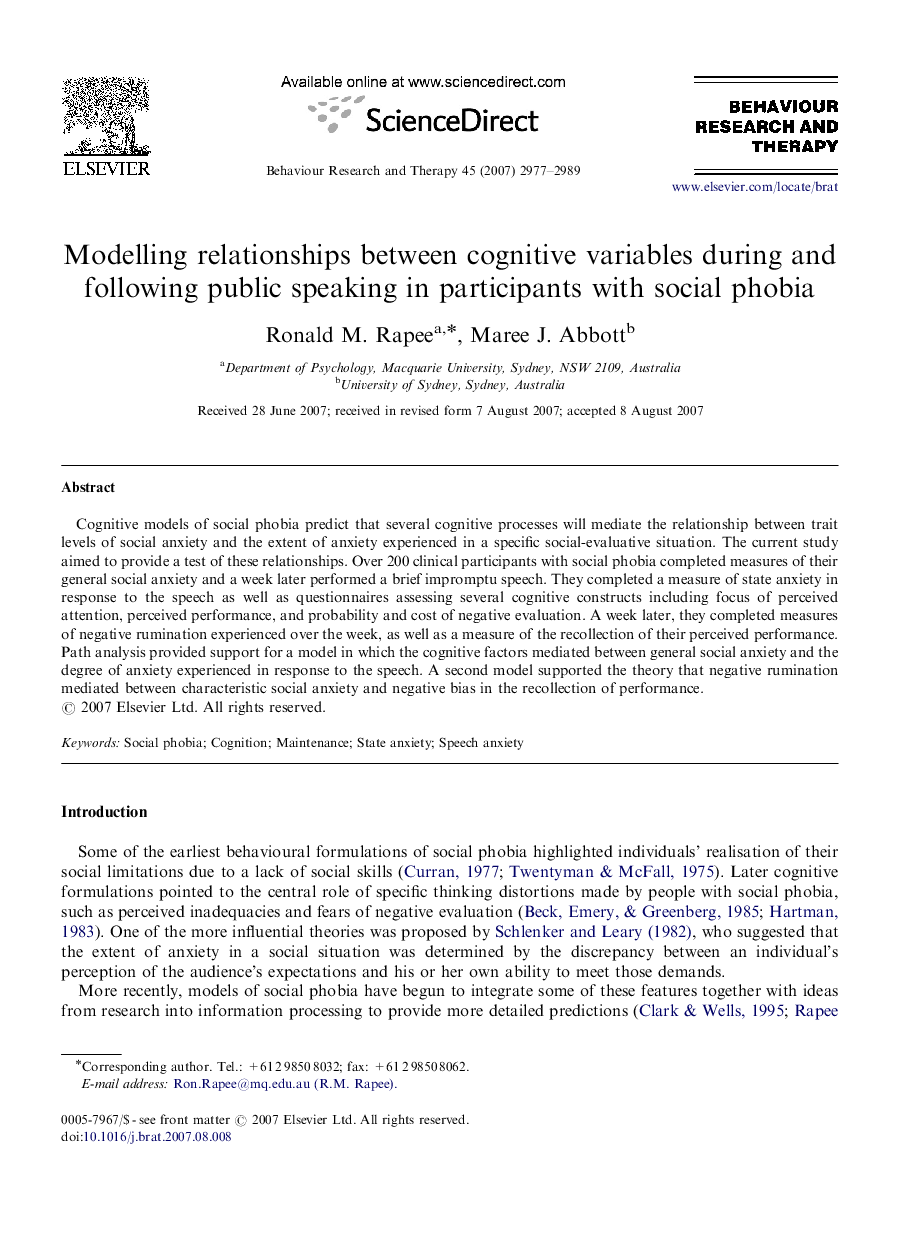| Article ID | Journal | Published Year | Pages | File Type |
|---|---|---|---|---|
| 10444842 | Behaviour Research and Therapy | 2007 | 13 Pages |
Abstract
Cognitive models of social phobia predict that several cognitive processes will mediate the relationship between trait levels of social anxiety and the extent of anxiety experienced in a specific social-evaluative situation. The current study aimed to provide a test of these relationships. Over 200 clinical participants with social phobia completed measures of their general social anxiety and a week later performed a brief impromptu speech. They completed a measure of state anxiety in response to the speech as well as questionnaires assessing several cognitive constructs including focus of perceived attention, perceived performance, and probability and cost of negative evaluation. A week later, they completed measures of negative rumination experienced over the week, as well as a measure of the recollection of their perceived performance. Path analysis provided support for a model in which the cognitive factors mediated between general social anxiety and the degree of anxiety experienced in response to the speech. A second model supported the theory that negative rumination mediated between characteristic social anxiety and negative bias in the recollection of performance.
Related Topics
Health Sciences
Medicine and Dentistry
Psychiatry and Mental Health
Authors
Ronald M. Rapee, Maree J. Abbott,
